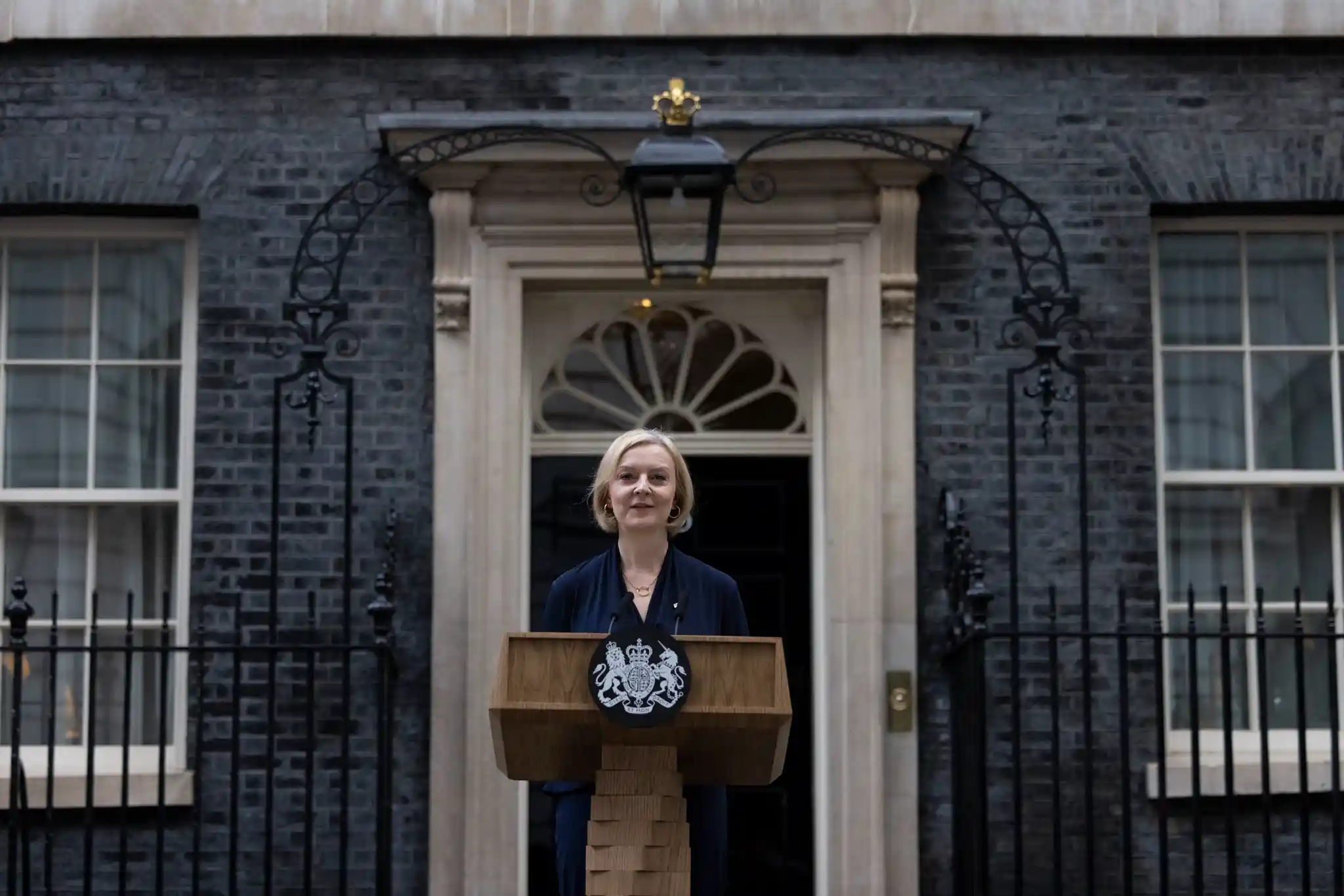

Liz Truss outside 10 Downing Street (Photo: @trussliz/Twitter)
The short-lived leadership of UK Prime Minister Liz Truss has opened up the field of the Conservative Party leadership and the British Prime Minister’s post to a fairly large number of candidates. The Conservative Party, which faces a most challenging time, has promised to elect a new leader within a week.
Some of the names in the ring include former prime minister Boris Johnson, former Chancellor of Exchequer Rishi Sunak, former defence secretary Penny Mordaunt and current Chancellor Jeremy Hunt. Former soldier and current defence secretary Ben Wallace, who has earlier shown his inclination to be the prime minister too is in the race.
Typical British humour
Whosoever the Conservative Party chooses now by Monday will have to grapple with a swiftly-declining economy—”the cost of living crisis”, the energy crisis which is set to become bigger as winter sets in and the unending war in Ukraine which is draining British and also European resources.
The Conservative Party will elect the next prime minister who musters the support of 100 MPs. The party has 357 members in the House of Commons.
The BBC says that Sunak has the maximum support among the MPs at 43, Johnson at 19 and Mordaunt at 15. The bookies also put Sunak ahead of all other competition.
Prime Minister Truss resigned on Thursday after unabated criticism of her economic policies from within her own party. Addressing the media in front of 10 Downing Street, she said that she cannot deliver the mandate entrusted to her by the Conservative Party.
Truss’ resignation followed the resignation by her Home Secretary Suella Braverman a day earlier and that of Kwasi Kwarteng who was asked to step down last week amid much embarrassment over his financial and economic decisions that pushed up government borrowings, reduced government income and brought down the Pound scaring the markets.
Ironically, Truss’ announcement of resignation buoyed the markets despite the political uncertainty that Britain faces. The country, which was looking forward to signing a Free Trade Agreement (FTA) with India around Diwali, will have to wait till a new government settles in, stabilises the country and comes up with a coherent policy on various fronts.
The new prime minister and the leader of the Conservative Party will take on the mandate under the double strain of steering the country through tough economic times as well as ensuring that the party regains its lost confidence among the masses as it faces elections in 2024.
Also Read: British PM Liz Truss resigns 6 weeks after taking over
India decisively asserted its military superiority over Pakistan during this month's brief but intense conflict,…
Trade associations and local business groups in Pakistan-occupied Gilgit-Baltistan (PoGB) launched an indefinite protest on…
A human chain and protest march was organized by various organizations in front of the…
The United States on Saturday announced the expansion of its security partnerships with India through…
Highlighting the use of indigenous platforms during Operation Sindoor, Chief of Defence Staff (CDS) General…
Congress MP Shashi Tharoor on Friday (local time) said that Colombia will issue a statement…